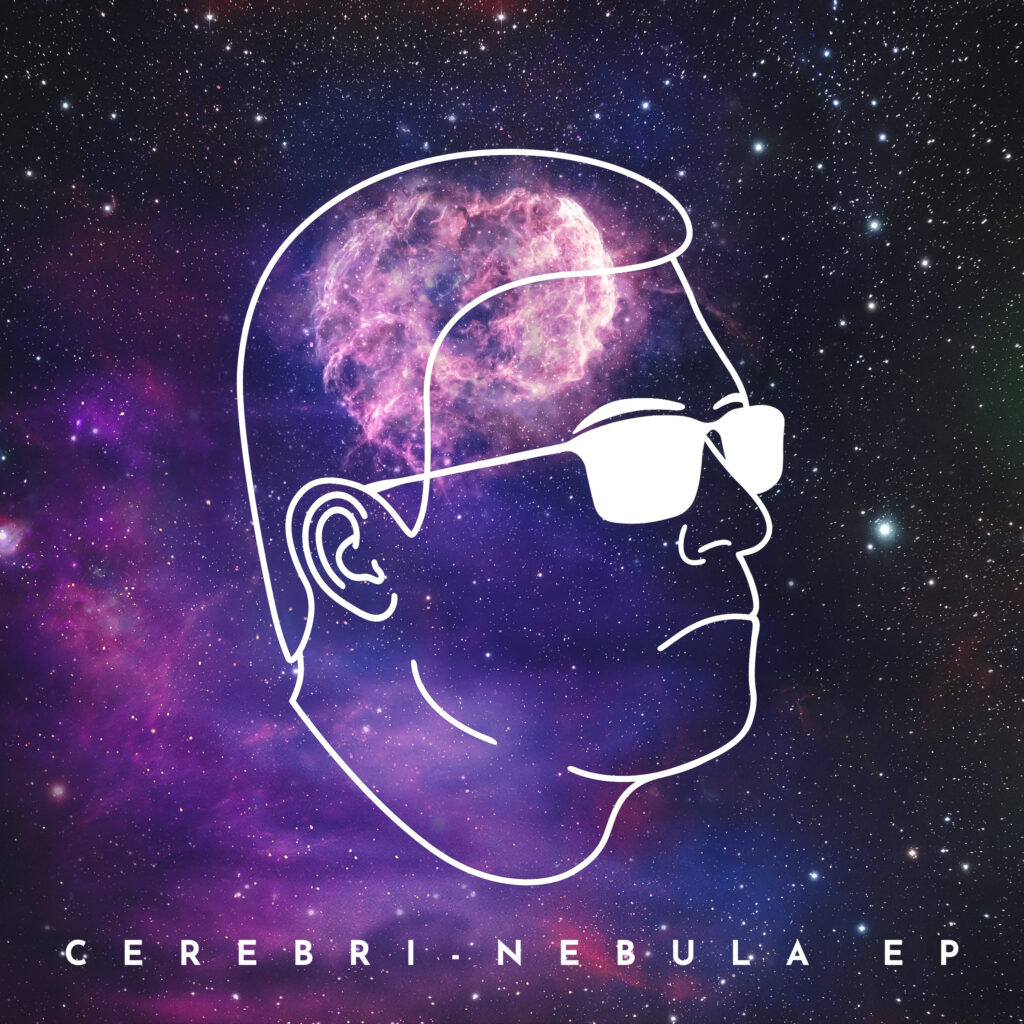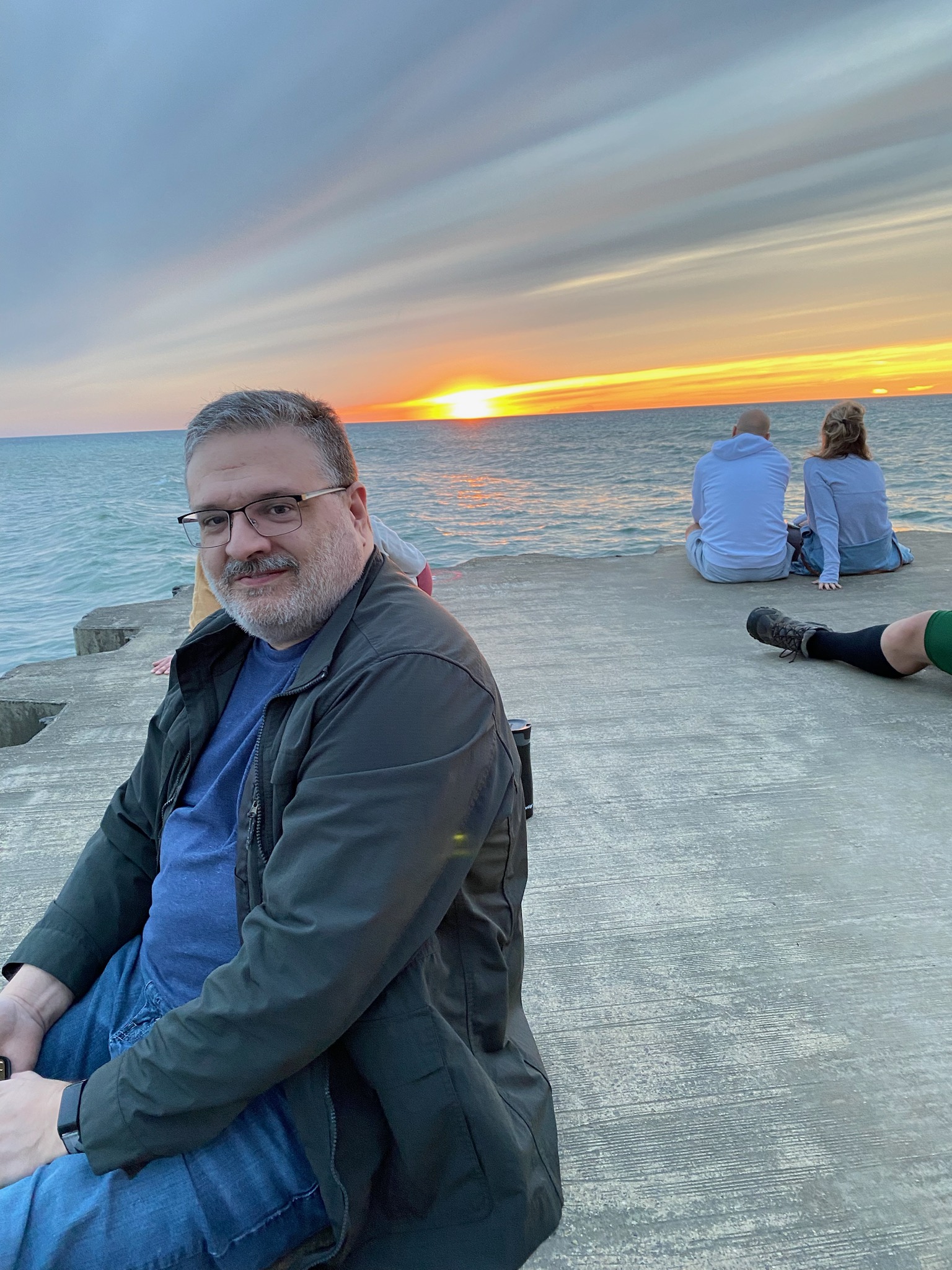Ford Cotton is a progressive rock and electronic songwriter from Brighton, Michigan, whose latest release, Cerebri-nebula, delves deep into the complexities of mental health awareness. Through layered soundscapes and emotionally charged lyrics, the EP captures the raw intensity of personal struggles and the hope for healing. Cotton’s journey back to music after years away is a testament to resilience, and his thoughtful approach to songwriting blends elements of his background in music theory and sound synthesis.
In this conversation, Cotton opens up about the inspiration behind Cerebri-nebula, his rediscovery of his musical voice, and the challenges of authentically expressing mental health experiences through music. He also offers insight into his creative process and shares what listeners can expect as he embarks on the journey of crafting a full-length album. Dive in for an inspiring and insightful look at the artistry behind Cerebri-nebula and the story of an artist who found his way back home through music.
Congratulations on the release of Cerebri-nebula! The EP explores mental health awareness through its themes. What inspired you to tackle such a profound and important subject in your music?
I have struggled with mental illness since I had my first panic attack when I was 27. Within five years, I had a few stays at psych wards and at outpatient facilities in and near Ann Arbor, Michigan. During that time, I encountered many other people who had all kinds of expressions of mental illness, including delusions, hallucinations, confused speech, and paranoia. One of the things I learned is that people from all walks of life can experience mental issues that interfere with their lives, but also that there is hope and help out there for those who suffer. That’s the message I want to bring with my music.
You’ve mentioned that the EP confronts overwhelming emotions experienced by people from all walks of life. Can you share more about how you approach this topic musically and lyrically?
It’s a personal thing. In my own life journey, I have experienced a lot of overwhelming and troubling emotions, ranging from severe debilitating depression to panic attacks. Lyrically, all the songs deal with different aspects of my life. “Trauma” is about someone experiencing disorientation affected by a triggering event. “Pain is Part of the Package” deals with a breakup due to a misunderstanding fueled by an overactive and fearful mind. And “Cerebri-nebula” is a made up word meaning “brain fog”. I’ll leave the meaning of the song for others to ponder.
Musically, the songs contain disturbing chords and odd melodic structures (“Trauma”), an odd time signature and several dynamic changes (“Pain is Part of the Package”), and many layers of fast paced and evolving, noisy sounds (“Cerebri-nebula”).
Having recently rediscovered your love for music, how does it feel to have finally returned to songwriting and composing after some time away?
It feels like I’ve come back home. And things at home are better than ever.

You’ve incorporated elements of your background in music theory and sound synthesis into your work. How did those academic and technical experiences shape your creative process for Cerebri-nebula?
It laid the groundwork. Much of the music I create originates in those academic learning experiences. It helped me to explore different instrumentation (one of my college compositions was for a solo French horn) and a whole lot of foundational electronic music from the 1950s-1970s, including the Csound music programming language. The tools have advanced so much since the mid-1990s that it’s impossible to keep up! But I do my best–I use a lot of soft synths and am starting to incorporate VCV Rack, which is a software model of a modular synthesizer, into my music. I just love playing with sound!
Can you talk about your journey of discovering your voice as a vocalist? How has it impacted your songwriting and the way you approach your music?
I have been singing ever since I was 4. Back then, it was soft romantic songs (how did I become a romantic at such a young age?) that I could sing softly without people hearing. I often sang, but always out of earshot, mainly in my car. I never really thought of myself as a vocalist, just someone who loved music and loved to sing to it… As long as no one could hear!
Then, in my mid-twenties, someone from my church heard me singing (ack!) when we were in a group singing praise songs, and he encouraged me to sing in choir, which I did for probably about 8 years. I sang a lot and gained confidence in my voice, even to the point of singing a few solos, including “Every Valley Shall Be Exalted” from Handel’s Messiah! One of the gals in our choir who was a music school graduate thought I did an amazing job! That was my high point.
Then, for reasons I won’t get much into (such as our choir director being fired and some women practically falling at my feet), I sang less and less and stopped singing altogether.
A few years ago I got back into songwriting, and started having lessons with a vocal coach who I still work with, and things just started blooming again. I suppose it just took many years of being away from music until I got up the courage again. And I am so grateful that I did.
“Main Street“ by Bob Seger and “A Charlie Brown Christmas” were influential in your early years. How do those early experiences with music continue to influence your style and sound today?
The deep emotional impact that songs like “Main Street” and “The Wreck of the Edmund Fitzgerald” (Gordon Lightfoot) gave me was profound. Depth and authenticity of emotional expression became a guiding principle for me. “A Charlie Brown Christmas” had quite a different impact on me. It was this sense of beauty and play that came from the hands of Vince Guaraldi. Beauty and play. It’s something I love putting into my music from time to time. It brings so much joy–which you will start experiencing as I put more of my works out there!
The EP includes a mix of progressive rock and electronic sounds. How did you blend these genres to create the unique atmosphere of Cerebri-nebula?
It just happens. I take all those ingredients such as strange harmonies and varied electronic sounds, mix them up, and out comes this music. It’s the mystery of the creative process. You experience those moments where you think “where in the world did that come from?” Those are some of the most satisfying moments I know of.
Given that you’re working on a full album, how does Cerebri-nebula serve as a foundation for the larger body of work? Are there thematic or musical threads that will carry over?
TBD. The process hasn’t really started yet, although I do have a few finished songs that I may use. Wait and see!
What role do you see synthesizers and electronic elements playing in your music moving forward, especially as you continue to develop your sound?
They are absolutely central to my sound. In the foreseeable future, I will continue to use different soft synths and play around with VCV Rack configurations. The possibilities are endless, and it always excites me. I plan to use more layers of more complex & engaging sounds as I grow in my knowledge of sound synthesis.
Mental health is a deeply personal subject. How did you find the balance between making this topic relatable while still keeping it true to your own experiences and emotions?
I believe that what is most personal is most universal. As long as I’m keeping my music real and representative of my own experience, it will be relatable.
Can you describe any challenges you faced while creating Cerebri-nebula, both musically and conceptually? How did you overcome them?
I think the only real challenge for me was singing. I wanted to make sure that I was truly showing my emotions through my singing, doing things such as emphasizing consonants, gasping for air, deepening my voice at the end of a phrase, etc. I was very meticulous and going over and over it again, which at times became exhausting. But I managed to get through it. As I listen back, I think “AH! I could have sung better there!”. We’re all our own worst critics, right?

As someone who has been both a saxophonist and keyboardist, how do you decide which instruments to feature in your compositions, and what role do they play in the overall narrative of the EP?
The saxophone never became part of the EP. I still must get it out, maybe for appearance on the album! We shall see.
The keyboard sounds are often chosen for their mysterious or agitating sounds. Whatever I feel best represents a particular troubled state of mind.
What has the response been like from your listeners so far? Are there any reactions that have surprised or deeply moved you?
Mostly overt enthusiasm. “Wow! That was so cool! I loved it!” A few others said “Great rhythmic choices. Great subject matter.”
I got a reaction from another vocal coach (Beth Roars): “…wow, I love the production and ambient sounds. So evocative! Ooo, listen to Pain is Part Of The Package. Love the arpeggiated synths! And the one…. wow. Very emotional!” That really touched me. So wonderful to hear specific compliments from a fellow musician. I’m tickled pink. [laughs]
Looking ahead, what’s next for you creatively? Can you share any details about the full album you’re working on or any upcoming projects?
Well, like I’ve said, I don’t have definite plans yet, but I’ll be in the planning stage in March. One thing I want to do is incorporate a wider range of emotions, such as joy, excitement, and love. The kind of stuff that gives you the warm fuzzies. I’ll do my best to put updates on my website: https://www.outinleftfieldmusic.com.

